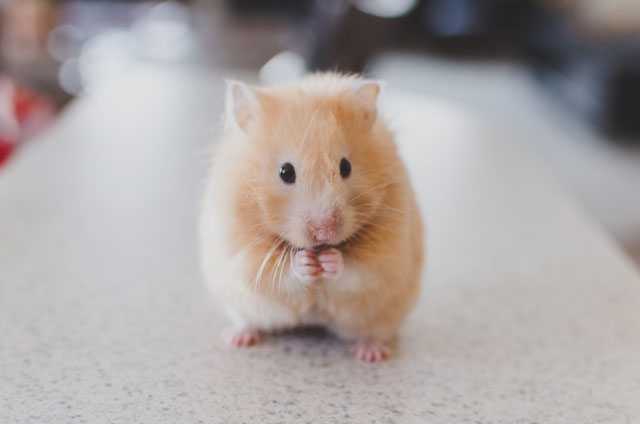- Size
- Smallest
- Small
- Small to Medium
- Medium
- Large
- Giant
- Characteristics
- Smartest
- Hypoallergenic
- Fluffy
- Best Guard
- Best Family
- Best for Kids
- Low Shedding
- Healthiest
- Police Dogs
- Most Calm
- Quietest
- Color
- White
- Black
- Grey
- Brown
- Blue
- Red
- Coat
- Hairless
- Short
- Long
- Origin
- Japan
- China
- Australia
- Germany
- Italy
- United States
- France
- Group
- Hound
- Terrier
- Herding
- Toy
- Working
- Sporting
Pet Compatibility Test: Finding Your Ideal Animal Companion

Photo by Roberto Nickson from Unsplash
It may be tremendously exciting to find the ideal animal partner, but making that choice carries a lot of responsibilities. It's a decision that will influence your everyday activities, impact your emotional health, and form enduring memories.
Your bond with your pet is truly unique. Pets offer companionship, constant love, and a special connection that enriches your life in countless ways.
The article may help you find an ideal animal companion. We'll go through the key elements to think about and clarify what makes a good companion. We’ll also offer insightful advice on picking the ideal pet for your particular situation.
Assessing Your Compatibility with Pets
When it comes to selecting a pet, there's no one-size-fits-all answer. Additionally, doing your own research and assessment is essential in this stage. You should explore the characteristics, needs, and personalities of different types and breeds of pets.
For instance, if you're curious about fish as potential companions, you can read up and learn more about the black phantom tetra, a captivating aquarium fish known for its striking appearance and peaceful nature.
After doing your research, the next steps are to assess your own preferences, lifestyle, and commitment level:
Self-Assessment: Start by evaluating your personality and daily routine. Are you an active adventurer, a homebody, or somewhere in between? Different pets align with different lifestyles.
According to pet experts, maintaining a pleasant connection with your pet requires that you equal their level of activity with your own.
Lifestyle Compatibility: Consider your living situation. Do you have a spacious backyard, a cozy apartment, or limited space? Some animals thrive in larger areas, while others are perfectly content in smaller spaces. Certain dog breeds, like Great Danes or Greyhounds, are better suited to larger living spaces, while smaller breeds like Chihuahuas adapt well to apartments.
Time Commitment: Think about the time you can dedicate to a pet. Dogs often require more attention and exercise than cats, while small mammals and fish may need less interaction but still require proper care. Per research in the Human Kinetics Journal, dogs generally need between 30 and 2 hours of activity every day, depending on their size and breed.
Understanding Companion Animal Qualities
A good companion animal possesses specific traits that make it suitable for human interaction. Each companion has its charm, so consider which qualities align with your preferences and circumstances.
Let's delve into some popular choices:
Dogs: Known for their loyalty and affection, dogs are ideal for those seeking a playful, active companion. Dogs have numerous breeds, each possessing distinct traits and characteristics. Having a dog may improve one's mental and emotional health by lowering stress and boosting happiness, per psychologists. Thus, various dogs are trained to be emotional support service animals, offering essential comfort and stability to individuals dealing with emotional or psychological challenges.
Whether you're an active individual seeking a running partner or prefer a calm and gentle companion, there's a dog breed that can match your lifestyle. For instance, Labrador Retrievers are known for their friendly and outgoing nature, while Shih Tzus are affectionate and well-suited to indoor living.
Cats: Independent yet loving, cats are perfect for individuals with busy lifestyles. They are perfect for apartment life because of their low maintenance requirements. Per the Journal of Vascular and Interventional Neurology, stroking a cat can reduce stress and lower the chances of heart disease.
RELATED: Top 10 Psychological Benefits of Owning a Cat
Small Mammals: Animals like rabbits, guinea pigs, and hamsters can make excellent friends for the children. They require less space and offer a chance for kids to learn about responsibility. Some experts say that children's empathy and social abilities can be enhanced via contact with tiny animals.

Photo by Ricky Kharawala from Unsplash
Fish: Aquarium fish, such as the black phantom tetra, can bring tranquility and beauty to your space. They require minimal interaction but offer visual delight. Research indicates that observing fish swim can soothe emotions, lowering stress and anxiety.
Defining Your Companion Animal Preferences
It's time to go deeper into knowing your own preferences and wants in a companion animal now that you've thought about the more general features of your lifestyle and compatibility with various breeds of dogs. This step is crucial in making decisions that match your preferences and situation, helping you narrow down your options effectively.
Compatibility with Allergies: If you or someone in your household has allergies, this becomes an important factor in your decision-making. Animals can trigger various levels of allergic reactions. This can vary from mild to severe. It's essential to choose a pet that won't exacerbate these issues. Consider hypoallergenic dog and cat breeds, as they are known for producing fewer allergens. Consult an allergist as well to identify your unique allergy sensitivity and take the appropriate safety measures.
Activity Level: Your own activity level and how much exercise and playtime you can provide play a significant role in choosing the right companion animal. Active breeds like Border Collies and Labrador Retrievers thrive with active owners who can provide ample exercise and mental stimulation. In contrast, calmer breeds, such as Basset Hounds or Bulldogs, may be better suited to a quieter lifestyle with less physical activity. To have a happy connection with your pet, it's important to match your energy level with theirs.
Long-Term Commitment: Consider the long-term commitment required for your chosen pet. Pets, whether they have fur, feathers, or fins, often live for many years, and their well-being depends on your dedication. Dogs, for example, can live anywhere from 10 to 15 years or more, while certain parrot species can have lifespans of 50 years or more. Be prepared for the responsibility and care that spans decades. Think about where you see yourself in the future and whether your chosen pet will still be a good fit.
Financial Responsibilities: Pets come with costs such as food, veterinary care, grooming, and supplies. Budgeting for these expenses is crucial to ensure your pet's well-being. According to the 2022 U.S. Census, the average cost of pet ownership per year may impact 6% of the average household income.
When all factors are considered, also ponder on adopting a pet from a shelter or rescue organization. This decision not only saves a life but also gives a homeless animal a loving home.
Conclusion
Choosing the ideal companion animal is a big decision that should fit your lifestyle, interests, and degree of dedication. Taking the pet compatibility test can help you make an informed choice and lead to a lifetime of joy and companionship. Take your time when choosing a pet to prepare to welcome a new member into your family.
You May Also Like
 Breed Reviews8 Great Choices: Best Medium-sized Dogs For Beginners
Breed Reviews8 Great Choices: Best Medium-sized Dogs For Beginners Breed ReviewsThe 10 Dog Breeds That Don't Shed
Breed ReviewsThe 10 Dog Breeds That Don't Shed Help & Advice10 Tips for New Dog Owners
Help & Advice10 Tips for New Dog Owners Calm Dog Breeds10 Dog Breeds That Are Calm, Easygoing, And Make Good Pets
Calm Dog Breeds10 Dog Breeds That Are Calm, Easygoing, And Make Good Pets Dog Training TipsHow to Train a Dog To Poop and Pee in One Spot
Dog Training TipsHow to Train a Dog To Poop and Pee in One Spot Help & AdviceThese 10 Dog Breeds Novice The Best Not To Keep!
Help & AdviceThese 10 Dog Breeds Novice The Best Not To Keep!